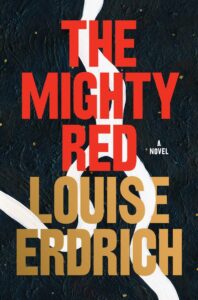April 3, 2025
New Book News!
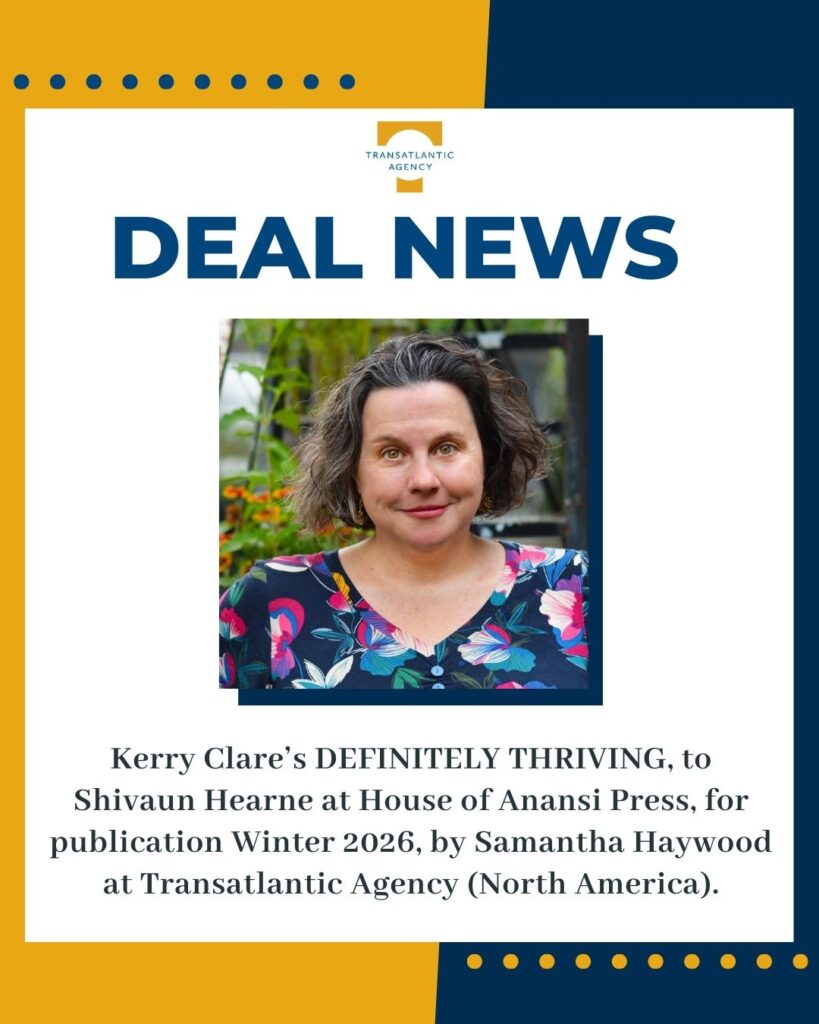
This is my big news! It even made Publisher’s Lunch! I’m really really happy and looking forward to sharing this book with you.
December 4, 2024
Taking Stock for December
Getting: set to take a break for the holidays, a break from social media and books published before 1963. It’s my favourite thing and a highlight of every year.
Cooking: Nothing at the moment, and I have NO CLUE what we’re having for dinner, but Smitten Kitchen’s Chicken Soup with Dumplings continues to be a highlight. (The recipe is from Smitten Kitchen Keepers but this recipe is pretty similar.)
Sipping: A Christmas tea from last year that I really need to finish up in case someone gives me some for this year. Full disclosure: I don’t actually like the flavour of most things called Christmas tea.
Reading: The Mighty Red, by Louise Erdrich, omg it’s so fantastic. A last minute addition to my books of the year list.
Thinking: I mean, a little bit? But only a little bit. It’s been a bumpy week in terms of sleeping.
Remembering: When I had babies and all my weeks were bumpy in terms of sleeping
Looking: out the window at a grey and dismal day. There is snow on the ground, but it’s not fun snow.
Listening: to the Fast Politics podcast with Molly Jong-Fast
Wishing: That I wasn’t so tired and that the next door neighbour with whom I share a wall was a little bit quieter in the middle of the night.
Enjoying: This fuzzy ugly cardigan I liberated from my teen’s clothing discard pile.
Appreciating: The blue cheese I ate with apple in my lunch, which was on super discount at the grocery store last week.
Wanting: Dona nobis pacem
Eating: I just had a took the last bit of Smitten Kitchen’s Grapefruit Cake from the baking tin, but the other half of the cake is in the freezer.
Finishing: Everything? (See previous point about getting ready for the holidays…)
Liking: Winter clothes against the winter chill
Loving: Deleting Instagram from my phone every day once I’ve done my posting and not wasting time checking it again after that.
Buying: Christmas presents from small businesses, which the current postal strike has forced me to do, and I’m grateful.
Watching: I finally watched Everything Everywhere All At Once last weekend, and I loved it so much. I am looking forward to watching Season 2 of Bad Sisters over the holidays.
Hoping: Proper snow and winter weather (with lots of tobogganing)
Wearing: Wide legged jeans on a snowy day for the first time in years and am concerned I’ve forgotten what bad idea this is.
Walking: to the swimming pool en route to pick up Iris from school this afternoon.
Following: the news from South Korea
Noticing: How suddenly the trees are all naked.
Saving: money for my kid’s orthodontia!
Feeling: fine, but sleepy.
Hearing: Sounds of sirens in the distance, part of the usual city soundscape.
June 14, 2023
Author Website
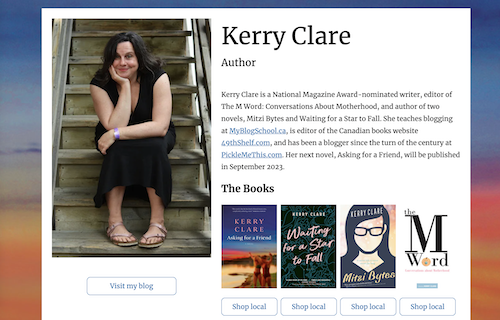
I’m very excited to announce, nearly ten years after the release of my first book, that I finally have an author website. I’m sharing it here in the unlikely case that someone reading my blog didn’t KNOW that I am an author (perhaps you are sidebar-blind?). If my next book does well, let’s give this author website ALL THE CREDIT, okay?
January 31, 2022
To Hold This Falling-Apartness
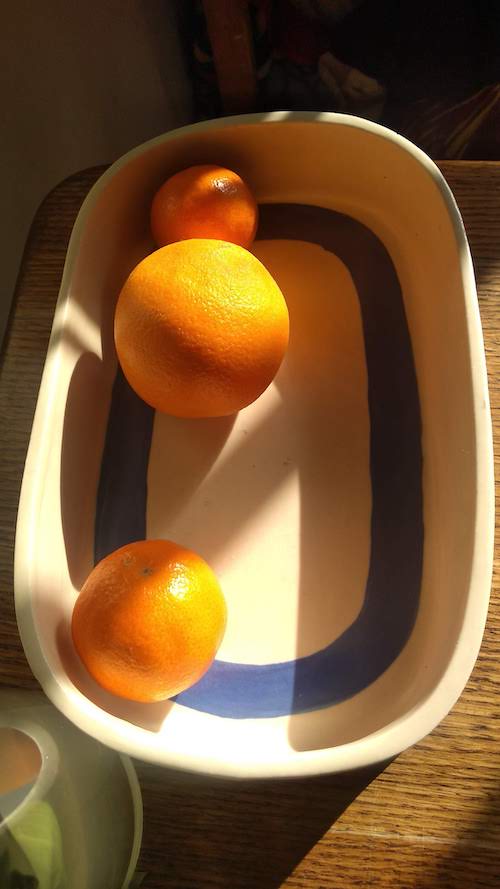
“We are at a time when old systems and ideas are being questioned and falling apart, and there is great opportunity for something fresh to emerge. I have no idea what that will look like, and no preconceptions about how things should turn out, but I do have a strong sense that the time we live in is a fertile ground for training in being open-minded and open-hearted. If we can learn to hold this falling apart-ness without polarizing and without becoming fundamentalist, then whatever do today will have a positive effect on the future.” —Pema Chodran, Welcoming the Unwelcome
In September I wrote about the end of (my own) political contempt, about the way my ideas had shifted in the last few years politically speaking, my awareness that responding to political polarization and enmity with more of the same was only serving to make a bad problem worse and definitely wasn’t making anything better. I don’t know what the answer is to our current political divide, but I definitely know that digging in my heels, and burning bridges, and dying on hills, etc. isn’t it.
I will not meet rage and fury with rage and fury, because I am absolutely finished playing such a self-defeating game.
Instead, I take a deep breath, summon my inner Pema, and breathe out a genuine wish that those furious and foolish-seeming people on Parliament Hill (the ones who seem to be comfortable standing in the company of extremists and hatemongers; I’m going to imagine there is a distinction) and all those keyboard warriors who are sympathetic toward those protesters will somehow find relief from their anger and start looking for more meaningful ways to engage with their neighbours and their communities.
I will continue to direct my attention and efforts towards connecting with real people in my own community, instead of playing the unwinnable game of online arguments. (The game is rigged, you know. Engaging with bad content just boosts bad content. And listen, I’ve had to learn this the hard way.)
I remind myself that one news story is not the whole world and while egregious behaviour was taking place this weekend, all across the country there were people doing great work to get people vaccinated, to support their neighbours in need, and others were meeting friends, immersing themselves in nature, supporting local businesses, that most truckers were out there doing their jobs and keeping things going, and first responders were showing up, and nurses and doctors were continuing to do their jobs under such harrowing conditions as they’ve done throughout the last two years (although I am so happy to hear that Covid hospitalization rates are continuing to fall) and that from coast to coast to coast, people were doing things like visiting the library, and planning their gardens (because spring is on the horizon) and roasting marshmallows around a campfire with friends (that was me!).
None of this is to minimize the harm of what’s going on, but it’s definitely an effort not to maximize it. Attention is a legitimizing force, and I’m not playing that game either.
September 21, 2021
The End of Political Contempt
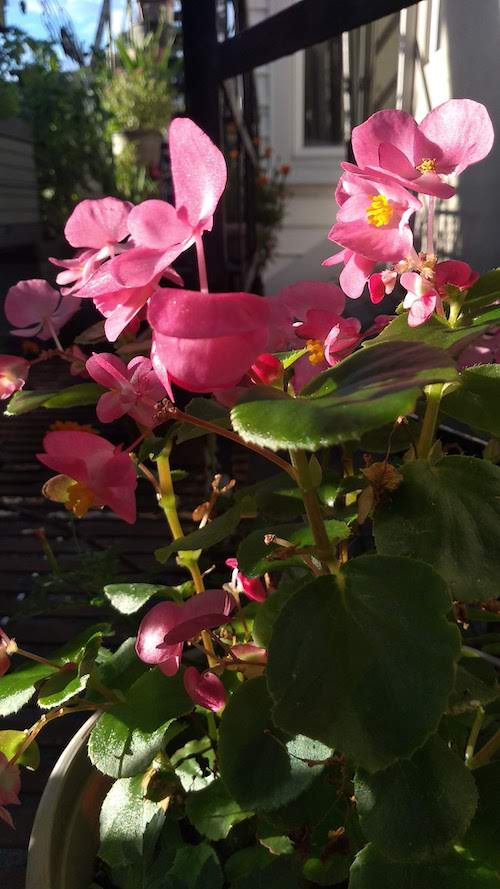
In September 2020, something shifted for me, after an agonizing decade of partisan politics. It was a decade that began with the inexplicable election of Rob Ford as our city’s mayor, complely bursting my comfortable left-wing Twitter bubble, continuing on to you-know-who’s election to the White House in 2016, and then Rob Ford’s less likeable brother becoming premier of Ontario in 2018. Which would kick off a roller coaster of a four year term in which incompetence has been matched only by sheer callousness.
So much has been terrible in Ontario since 2018 that it’s easy for all the specifics to be lost in a whirlwind of nightmarish absurdity. From the widespread consultation of parents on school curricula whose results were never released, to random plans to scrap the full-day kindergarten program, undermining conservation authorities to permit development of green space, policies keeping communities from accessing developer funds to build vital infrastructure, plans to gut public health programs, and so much more—including the egregious act of arbitrarily interfering with Toronto’s municipal structure in the middle of an election, subverting the democratic rights of millions of people.
Labour disputes beginning in the fall of 2019 meant that the school year was regularly disrupted right up until schools closed altogether due to Covid in March 2020—and children in Ontario would remain out of school for the following 18 months longer than anywhere else in the country.
But when schools reopened in September 2020, I just couldn’t do it anymore, the fighting, the anger, the rage. I could no longer go on treating the government as my adversary. It would be impossible to send my children to school and preserve my mental health under such an arrangement, and so I had to shift my perspective. It helped too that the government—in spite of numerous pandemic failings, in particular in the area of long term care, resulting in thousands of devastating deaths—stopped behaving egregiously with such consistency, and seemed to understand (although always too late, always as a reaction) that people need governments after all. And while they weren’t a great government, or even a particularly good one, they were the government that we had right now and I had to put my trust in them as we made our way forward into a most uncertain future.
When I look back on the last five years of my own political action, there’s a lot that I reflect on. I am grateful for the empowerment and unity of the women’s marches, for example, the first time I ever walked in a crowd carrying a placard. But I wonder too if we’d be seeing the same display of rabid right-wing activism today, seemingly ordinary moms putting their kids on display, if there had been no pussy-hatted inspiration. (Those people have never had an original idea in their lives.) I have also reconsidered my feelings about the government of Ontario’s illegitimacy after they were elected in 2018, joining in calls for leaders to resign. While I do think this government’s tenure has brought significant damage to our province and its institutions, both the last year in American politics and our most recent election in Canada have underlined to me how fragile our democracies are and that those who try to delegitimize democratically elected governments do so at all everyone’s peril. And I’m thinking again about the power of rage as a political tool, which seemed all fine and well when we were raging for our own truly noble causes, but what happens when other angry people start to use that tool too, and their anger is cruel, divorced from reality and terrifying?
When I look back at the last five years of my own political action, what I regret is the contempt I felt, contempt which is not so different from that which resulted from Barack Obama’s political success in 2008, and which has a direct line to the election of Obama’s successor 8 years later. It was actually Trump’s election which made our own contempt for Premier Doug Ford all the more vociferous—does the world really need more than one yellow haired angry populist? (Apparently we needed three.) But of course it was contempt for the previous premier, Kathleen Wynne, that had paved the way for Ford’s unlikely win in the first place.
“Contempt is the opposite of empathy,” Edward Keenan wrote earlier this month in The Toronto Star. “And as U.S. President Joe Biden has said, “empathy is the fuel of democracy.” If we cannot imagine ourselves in the shoes of other people, we have little hope of working with them in a healthy democratic society.”
The Ontario government has been terrible and inept, but they were voted in—not for better, but for worse, it’s true—by a fair election by my fellow Ontarians. And this idea that I myself perpetuated that somehow those people’ votes were less valid than mine or didn’t matter is so absolutely anathema to a functioning democracy—and we see the same dynamics playing out now in far right politics underlined by racism and white supremacy. “Canada use to be a great country to bad its not anymore cause of people like you,” in the brilliant words of a friend-of-a-friend on Facebook last week, and you could almost print that on a little red ball cap, you know?
“I don’t know how to explain to you why you should care about other people.” In the tidal wave of despair that was 2017 and onward, that viral phrase (often mis-attributed) was something to cling to, so perfectly articulating the powerlessness and despair that so many of were experiencing in the face of cruelty and obtuseness. The first time I saw that phrase, in a tweet, no doubt, I am sure that I RT’d it. THIS. But here is something else I’m thinking twice about, this politicization of care, or maybe the partisan politicization is what I mean, because care is certainly political. But I’m resisting the arrogance now that me and people who think like me occupy a kind of moral high ground, and that people who vote for other political parties don’t care for other people too, that they aren’t good neighbours, and generous friends, and charitable donors, and nurses, and teachers, and personal support workers. I’m resisting the idea that in order to care, you have to care the same way I do. I’m resisting the idea that we have no common ground.
Last night was the first election in as long as I can remember that didn’t, to paraphrase Sally Rooney in her latest novel, Beautiful World, Where Are You, “make me feel like I was physically getting kicked in the face.” The election that nobody wanted, perhaps, but its low stakes were almost refreshing—the angry Trumpy man in the purple suit leads a racist fringe part emboldened by anti-vaxxers this time but, statistically speaking in Ontario, our anti-vax population is so tiny that they’re having a hard time spreading the Delta variant, let alone fascism. And while I know details are sketchy and shifty, the other parties were all talking about vaccine mandates, and climate change, and the PC leader was at least trying not to come across as a troglodyte who wants to get all up in my uterus, and I’ve got to give him points for that. It’s certainly better than the alternative.
It’s certainly better than the alternative. A phrase that’s occurred to me several times in the past year or so, especially since we’ve seen the alternative, glimpsed on January 6 in Washington DC, in democratic crackdowns in countries like Belarus and Afghanistan, and so many more, places where political contempt has opened the door to extremism bringing forth a vicious spiral of democratic unravelling. I don’t want to do that anymore.
September 10, 2021
September
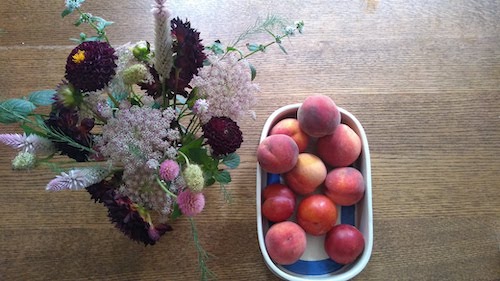
My children went back to school on Thursday, and two days seems about the appropriate length for the first week of school after six months at home. Happy to report that both kids are having a wonderful time, but that two days is not really sufficient for a work week. Also that going on summer holiday repeatedly is not conducive to productivity, particularly when you keep booking mid-morning swims at the public school. All of which is to say that I’ve had a very good summer, but have a lot of catching up to do. Further, my blogging course is running again this month (it’s been two years since I launched Blog School) and, once again, my group is amazing, and I am enjoying their work so much. And hoping that five days next week to sit down and focus will yield great results in terms of me catching up on everything I’m behind on. In cased you missed it elsewhere, I abandoned a 72,000 word novel in June because it wasn’t even halfway done and didn’t have a plot, and then I started something new that is proving achingly slow-going but perhaps is really good. Just got to 26,000 and I’m really pleased with it, but it’s hard. Though this project will soon be temporarily put aside when I get notes back on my next novel and get back to revising a book I’ve been writing since 2015. In wonderful news, you’re going to be able to read it one of these days, and yes, working on something that will one day see the light of day will prove to be a most refreshing change.
July 7, 2021
Grinding Sharpening

For years, the knife sharpening van has existed on the margins of my experience, an uncanny ringing in the distance, slowly moving up and down the streets of our neighbourhood, slightly sinister. The idea of waving him down with a handful of knives always seemed awkward to me, and so I never have, and so all of our knives are dull dull dull.
The knife sharpening van makes a cameo appearance in my first novel, Mitzi Bytes, underlining the danger inherent in ordinary lives.
We were having a conversation about the knife sharpening van, its elusiveness, and our dull kitchen knives as recently as yesterday.
And then tonight we heard the tell tale clang clang clang, and ran out the door, knife wielding maniacs. “Stop, stop!” And he did!!
WE CAUGHT THE KNIFE SHARPENING VAN.
And it did not even open up a portal to another dimension.
It did, however, generate considerable sparks.
And someone is likely to slice open their hand in our kitchen within the next few days.
It was really and truly magic.
April 26, 2019
Revelations
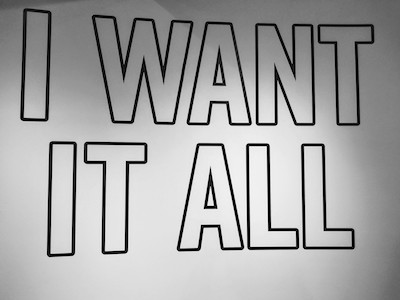
Remember in January when I was listening to Amanda Laird’s podcast and it changed my life? I’ve been talking for years about turning my blogging workshops into an online course. I’ve wanted to be more deliberate in my blog and my social media platforms. And there was one other absolutely wild fantasy that I’ve had forever and ever…but more about that in a moment…
Remember what I wrote in January, about how marketing was kind of gross…but what if I was really using that idea as a place to hide for fear of failing? If you never try, you’ll never fail, and you’ll never win either, but not failing is a kind of winning—but what if it isn’t?
And it’s not like I don’t know failure. I have two new novels in the bag [or in the drawer; time will tell], another in the clearance bin, and exist in a state of publication limbo, which is why thinking about ways to be more active in my own success was becoming important to me. 2019 began and I had nothing specific to be excited about, which was the very worst thing. I don’t even know how to move forward in that situation…which is why I was very susceptible to the message of that podcast I was listening to in January, a conversation with Amanda Laird and Kelly Diels. I was looking for something, for permission, for inspiration.
Here’s what being a blogger has taught me: absolutely everything about making it up as you go along, figuring it out in pieces, step by step, and always learning, always growing. Trying and failing and trying again.
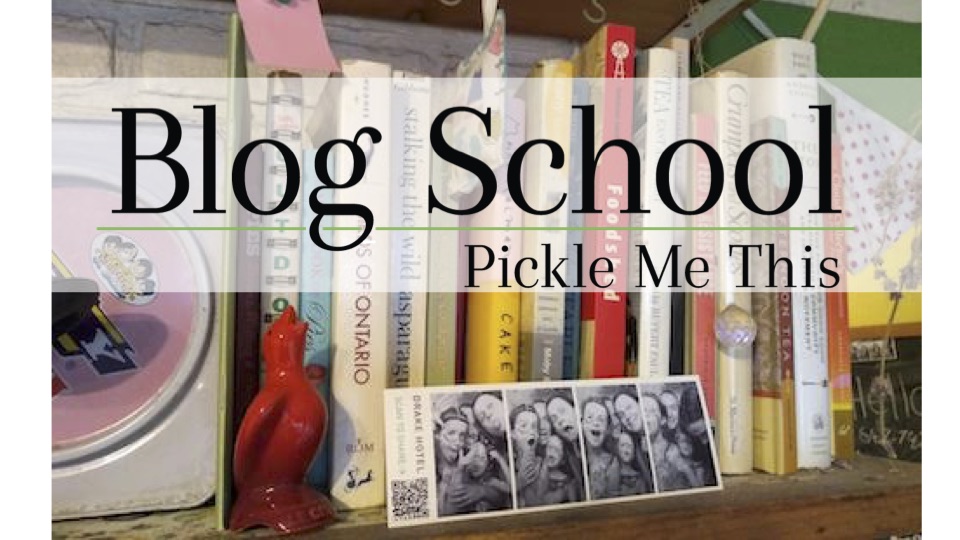
Blog School is launching in September. (Are you signed up for the mailing list yet??) I’m writing the modules from scratch, and I’m so excited (yay!) and also so happy to be this confident that I have an excellent product to offer.
In terms of my second goal, I really have gone back to the blog, and I’m loving it—and I’m contemplating ideas like selling ads and thinking about how to boost my audience (but not by changing the kind of work I do here) and I’m really excited about all this too.
And finally, the wild dream. A wild dream that I cut down to size so it would fit properly into the life I have and not be overwhelming. A dream that is still in the pilot project phase, and there’s so much learning ahead, and figuring stuff out, but I’ve been happy to have others put faith in this project, which will be bolstered by their expertise (and also by mine!). All will be revealed in the next six weeks or so, but here’s a glimpse of what’s happening in the meantime—or a piece of a logo at least….
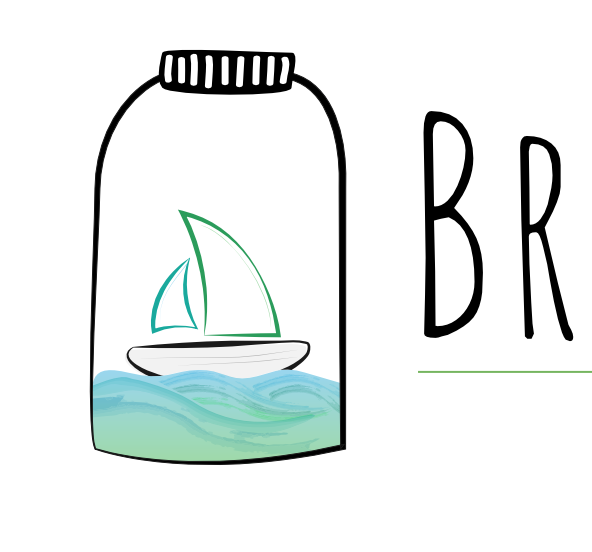
I guess this is really happening!! Stay tuned…
November 9, 2016
Work

One of the most fascinating (if dispiriting) endeavours in which I’ve ever partaken is following Reese Witherspoon on Instagram. Not for the fact of Reese herself, who is perky, inoffensive, and avidly marketing her southern lifestyle brand, but for her followers. These are people who, apart from the fact of Reese Witherspoon, I seem to have absolutely nothing in common. Though you wouldn’t know it at first—click on their accounts, and they’ve got jobs and kids and gardens and they’re instagramming their pie just like I am. But when Reese Witherspoon posted admiration about Michelle Obama this summer, they went ballistic. “Unfollowing.” “I’m never going to be able to watch Sweet Home Alabama again.” “Reese, you’re an entertainer. We don’t come here for the politics.”
We don’t come here for the politics.
As though politics was a channel on television and not the world we live in, and the streets we walk down (though I suspect these people drive down) when we take our kids to school. It was shocking to me, that decent-seeming people can operate in the world in this way. And not just in this regard of politics as a kind of accessory, something you can put on and shrug off. But that these decent people were coming at it with politics of their own,with their #NeverHillary and hash tagged support for the Republican candidate for president. These ordinary people are the monsters in our midst and they’re so emboldened. Moreover, they hate Michelle Obama. I didn’t know anyone hated Michelle Obama. They all seemed upset about her influence over school lunches. I don’t know. It was so much nicer when I had never considered Reese Witherspoon’s twitter followers, back when I lived in a bubble.
Yesterday the writer Glennon Doyle Melton posted a photo of her and her daughters wearing Wild Feminist t-shirts, ready to rock the vote. The photo received overwhelming support, save for a few people. People who wrote how they really respect Melton and value her work, but can’t believe she is supporting Hillary Clinton. (How? How? How? I would love to sit down for a drink with the woman I heard of the radio the other day who claims she’s voting Republican because she’s a Christian and has morals and values. What are they? How did the Republican candidate align with these? What is it like to live in a world that makes absolutely no sense. Although I’m started to get an idea…)
Somebody told Melton though, why are you involving your children in this? They’re young, this person said. Let them be kids and why concern them with politics? And this morning even more than yesterday I’m considering how abjectly wrong this is. That we have to involve our children. We can no longer expect others to do the work for us, and Facebook posts and tweets just aren’t cutting it—we’ve got to get out there and do the work, and our kids have to see us doing it. They have to know what the stakes are. It makes me think of Advice for the Young At Heart, by Tears for Fears. “When are we going to make it work?” I’ve spent a good decade being bitter at Baby Boomers for the world we’ve been stuck with, but I’m nearly forty—I need to do a better job for my own children.
“I could be happy. I could be quite naive. It’s only me and my shadow, happy in a make-believe.” And it’s not just me and my general complacency. It’s all the people who seriously considered Hillary Clinton the lesser of two evils, the people who are right now on twitter claiming that Justin Trudeau is just as bad—this fucking moralizing has to stop, pragmatism has to prevail. The current Liberal government has to use this moment of crisis to live up to their promises and underline the faith Canadians put in them a year ago. We have to work together with what we want. I don’t want a revolution. Although it’s easy for me to say—I’m not living on a remote First Nations reserve with no access to clean drinking water, for example (or in Flint, Michigan, with no access to clean drinking water) but I’m not sure these are the people who want a revolution either. I’m not sure the revolution some people are looking for would make life necessarily better for either of us.
The idea of politics being something you can take off or put on is continuing to trouble me. I wrote about it last March when Rob Ford died—I can’t put my politics aside. The idea that women are human beings worthy of respect is my politics, and it’s the foundation of everything. And this is what drives me nuts—not the idiots and the white supremacists because these people seem to have an astounding sense of their own identities, but instead the ordinary, decent people (your dad, your husband) who found making the choice between Clinton and Trump a difficult one. Do you know how radical that is? Do you understand how extremist and terrifying it is that any ordinary decent person who was of two minds about it even entertained the notion of voting for Trump, not even to get to the fact that they actually did so? If that were my dad, my uncle, I’d never be able to speak to that person again. All those families who quietly agree not to discuss politics at the table, lest it make anybody uncomfortable. But we have to be made uncomfortable. Look how impossibly uncomfortable we are this morning after a season of trying to be civil and understanding. The daughters of American need to turn to their dads and ask them, How could you do this to us?
(This is also why we have to raise our children to be feminist. Actively, whether they are our sons or daughters. Do not think the world will do it for you.)
My seven-year-old daughter crawled into bed with me this morning and her entire body was wracked with sobs. She is a bit melodramatic. 14 years of living with an English person has taught me not to get hysterical about things, but Harriet is still little. And I suppose I should be sorry that I involved her so much in what was happening yesterday, that she became so invested—this would be a victory for justice, for women, for feminism. But it’s not the worst lesson to learn, either, that the world is a deeply imperfect place and that the things you dream aren’t everybody else’s dreams. That there are disappointments and set-backs, but we fight on anyway. In fact, we fight on even harder. If it was important to be a feminist yesterday, today it is beyond paramount. We cannot stop.
I’m going to write a letter to my MP and to the Prime Minister today imploring them to see this as a pivotal moment—you must be the thing you promised you could be. I’m going to take action to stand up for the people of Standing Rock, who are defending their precious resources from the likely possibility of environmental disaster. I am going to continue to insist that Black Lives Matter. I’m going to lay down my life on the principal of public education so that we stop having people who fail to understand that #BlackLivesMatter means that all lives matter, and that they don’t right now. All this is a failure of intelligence, of empathy and understanding. I’m going to keep talking back to pro-life numpties on the street and online and using my voice and my story. I’m going to keep reading and learning and asking questions and rejecting cliches and trying to put the pieces together. To understand Reese Witherspoon’s instagram followers even, and where the common ground lies—the world does not need any more othering. I’m going to use my voice and my body and stand up for the things I believe in—which include goodness, the world, and people.
March 25, 2015
Pickle Me This: The Digest
 You’ll see up in the top of the right-hand column that I’ve started a Pickle Me This newsletter, which will be referred to with the far more literary title of “Digest.” The Pickle Me This Digest will be the best of the blog delivered each month to your inbox with a smattering of book reviews, picture book reviews, and other features. I know that fewer people are visiting blogs on a regular basis these days, and instead come to specific posts via social media links, which is all fine and well, but I thought the Digest might be a great resource for anyone who’d like to stay better in touch on a regular basis.
You’ll see up in the top of the right-hand column that I’ve started a Pickle Me This newsletter, which will be referred to with the far more literary title of “Digest.” The Pickle Me This Digest will be the best of the blog delivered each month to your inbox with a smattering of book reviews, picture book reviews, and other features. I know that fewer people are visiting blogs on a regular basis these days, and instead come to specific posts via social media links, which is all fine and well, but I thought the Digest might be a great resource for anyone who’d like to stay better in touch on a regular basis.
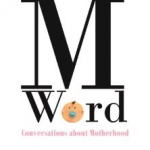 Even better? Anyone who signs up for The Pickle Me This Digest in the next month will have their name entered in a draw to win a copy of the essay anthology I edited, The M Word: Conversations About Motherhood, which was published last year by Goose Lane Editions. Mother’s Day is coming up soon, so the book is timely. And if you have a copy already? Well, why not pass your extra copy along to a friend? As Deborah Ostrovsky wrote in the Fall 2014 issue of Herizons magazine, “… You won’t keep this book; you’ll pass it on to friends whose current vocation is changing diapers, or to friends who want a child, and those who don’t.”
Even better? Anyone who signs up for The Pickle Me This Digest in the next month will have their name entered in a draw to win a copy of the essay anthology I edited, The M Word: Conversations About Motherhood, which was published last year by Goose Lane Editions. Mother’s Day is coming up soon, so the book is timely. And if you have a copy already? Well, why not pass your extra copy along to a friend? As Deborah Ostrovsky wrote in the Fall 2014 issue of Herizons magazine, “… You won’t keep this book; you’ll pass it on to friends whose current vocation is changing diapers, or to friends who want a child, and those who don’t.”
If you’ve already signed up for the newsletter, I’ll add your name to the draw. And as ever, thank you for your support of Pickle Me This!

